Crete
Where Ancient History Meets Aegean Beauty.
About Crete
Crete, the largest Greek island, offers a captivating blend of ancient history, stunning landscapes, and vibrant culture. From the majestic ruins of the Minoan civilisation at Knossos to the charming villages and pristine beaches, Crete is a destination for history buffs, nature lovers, and sun-seekers alike. Its rugged mountains, olive groves, and crystal-clear waters create the perfect backdrop for outdoor adventures, while the island’s warm hospitality and delicious local cuisine make every visit unforgettable.
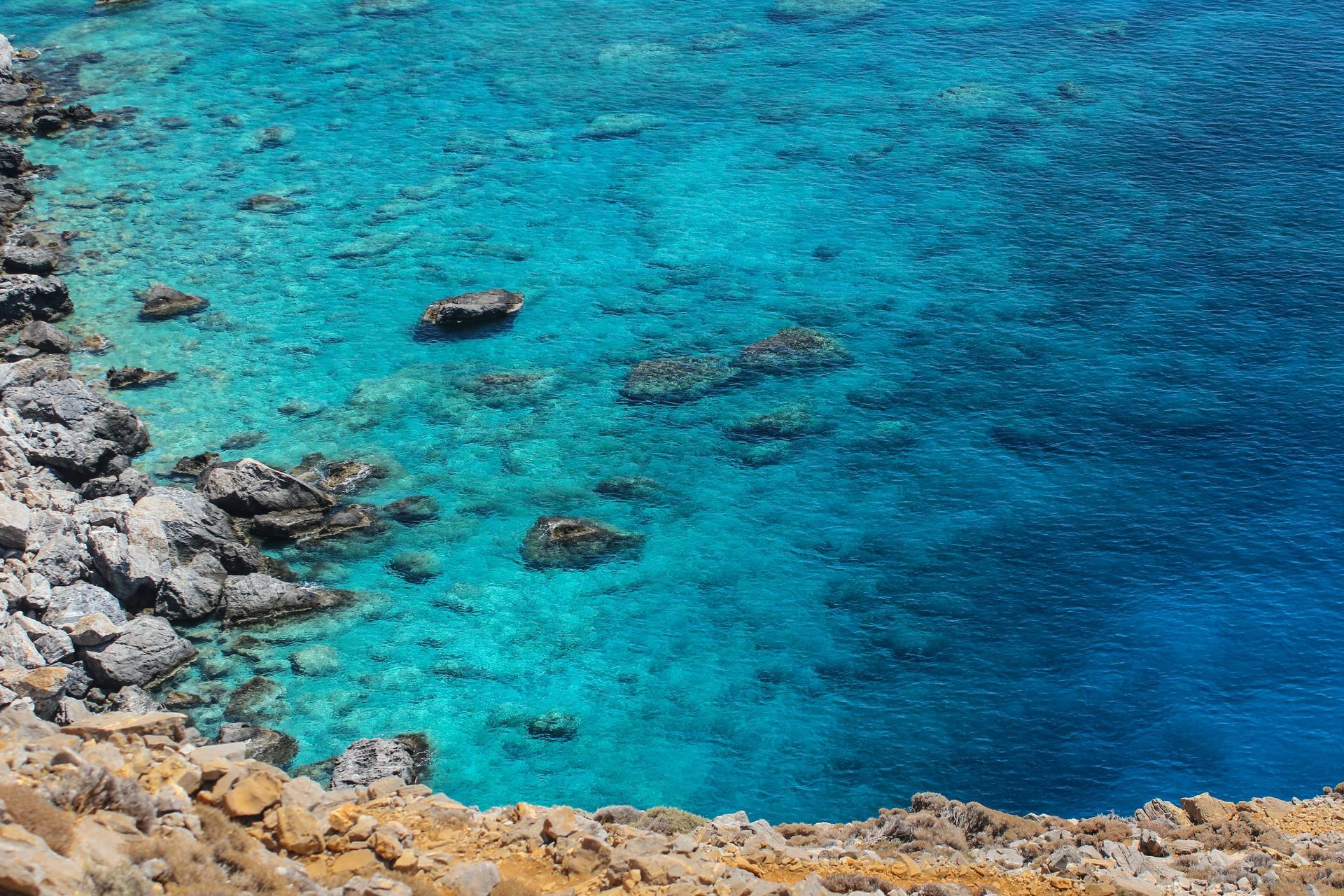
Discover Exclusive Resorts In Crete
Discover What Sets Us Apart
Local Knowledge
With insider access, our local experts unlock hidden gems and authentic moments you won’t find in any guidebook.
Best Price Guarantee
We offer the best experiences at the best value, if you find the same luxury journey for less, we’ll match it.
24/7 support
Your peace of mind is our priority, we provide personalised, round-the-clock support, always within reach.
Verified Properties
Our properties meet the highest standards so your stay exceeds every expectation.
Luxurious Destinations
Explore a world of elegance, our destinations are hand-selected for their exclusivity, charm, and timeless luxury.
What Our Clients Say
An unforgettable experience from start to finish. Every detail was thoughtfully tailored to our tastes. We felt like royalty throughout our entire journey!
Sophia & James L
The level of service was unparalleled. From private transfers to exclusive access, our vacation exceeded every expectation. Truly a five-star experience!
Eleanor M
Seamless luxury at its best. Our bespoke itinerary was perfectly curated, and the destinations were beyond extraordinary. Couldn’t have asked for a better travel partner.
Oliver T
Things To Do In Crete
From exploring ancient ruins like the Palace of Knossos to hiking the stunning Samaria Gorge and relaxing on beautiful beaches, Crete offers a perfect blend of history, adventure, and natural beauty.
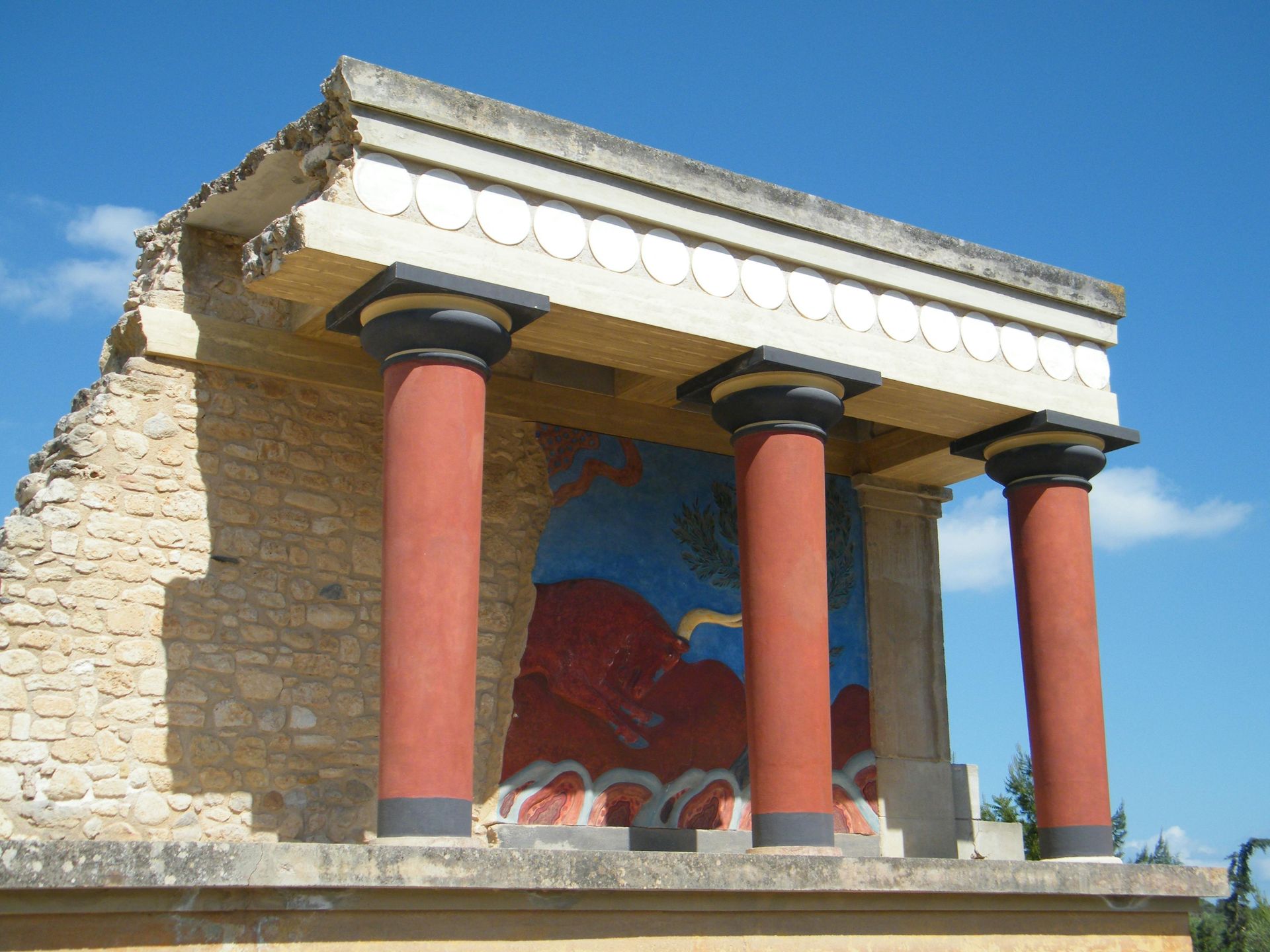
Visit The Palace of Knossos
Visit the ancient Minoan ruins near Heraklion, where you can wander through the remains of one of Europe’s oldest civilisations and learn about Crete’s fascinating history.
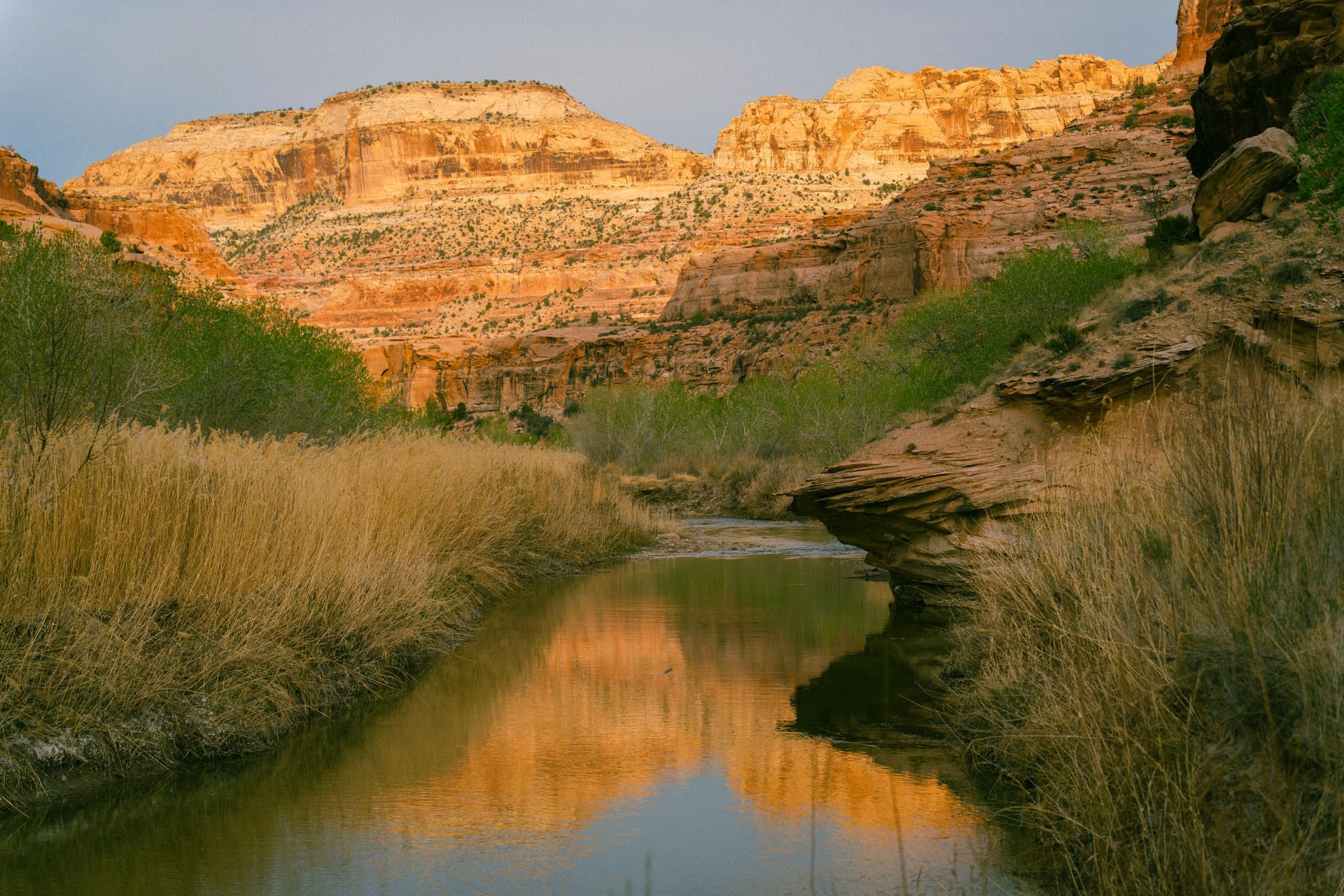
Hike The Samaria Gorge
Embark on a scenic 16-kilometre trek through one of Europe’s longest gorges, surrounded by dramatic cliffs and lush landscapes, ending at the Libyan Sea.
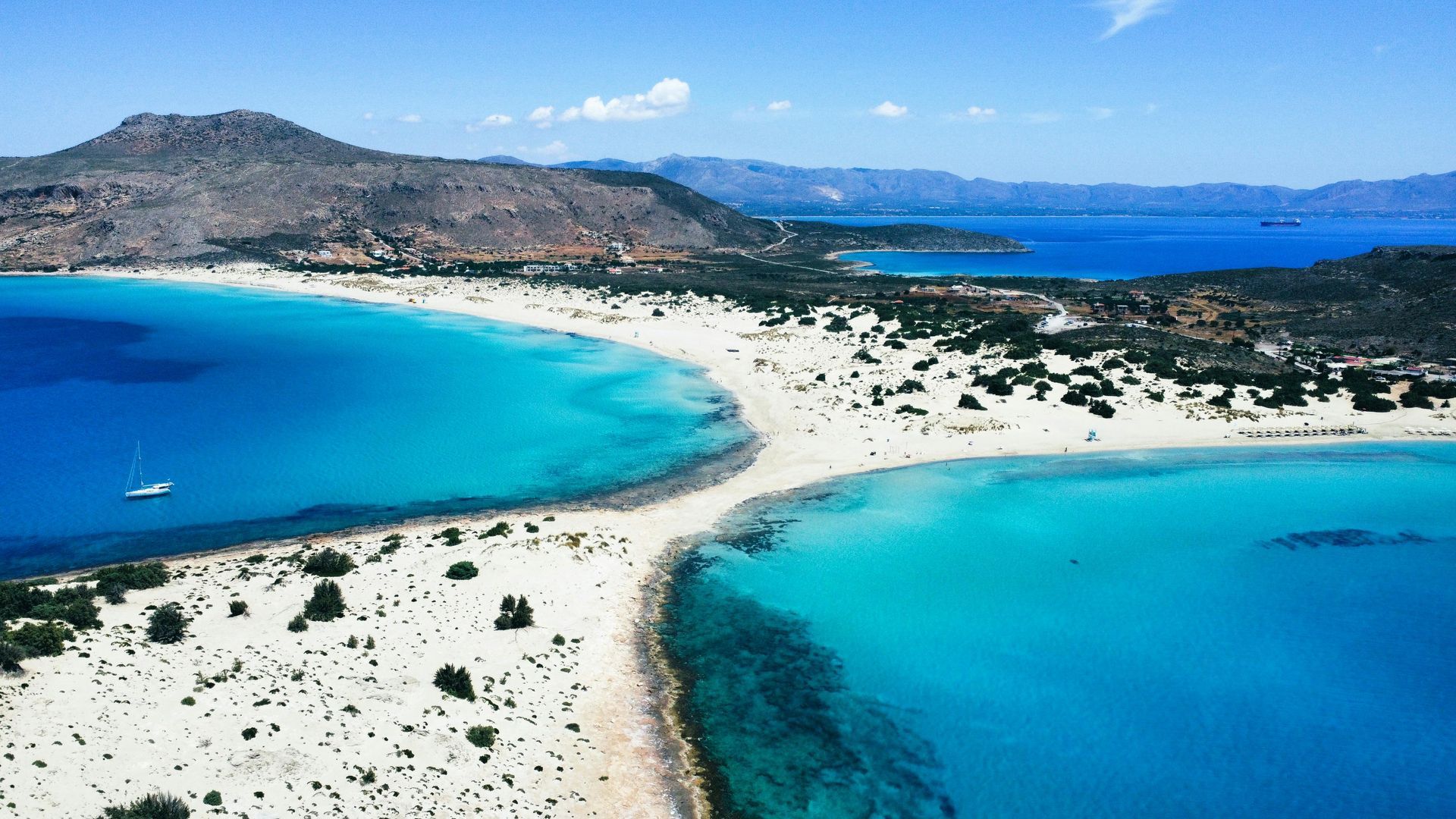
Relax on Elafonissi Beach
Enjoy the soft pink sand and clear turquoise waters of this stunning beach, known for its natural beauty and tranquil atmosphere, perfect for a relaxing day by the sea.
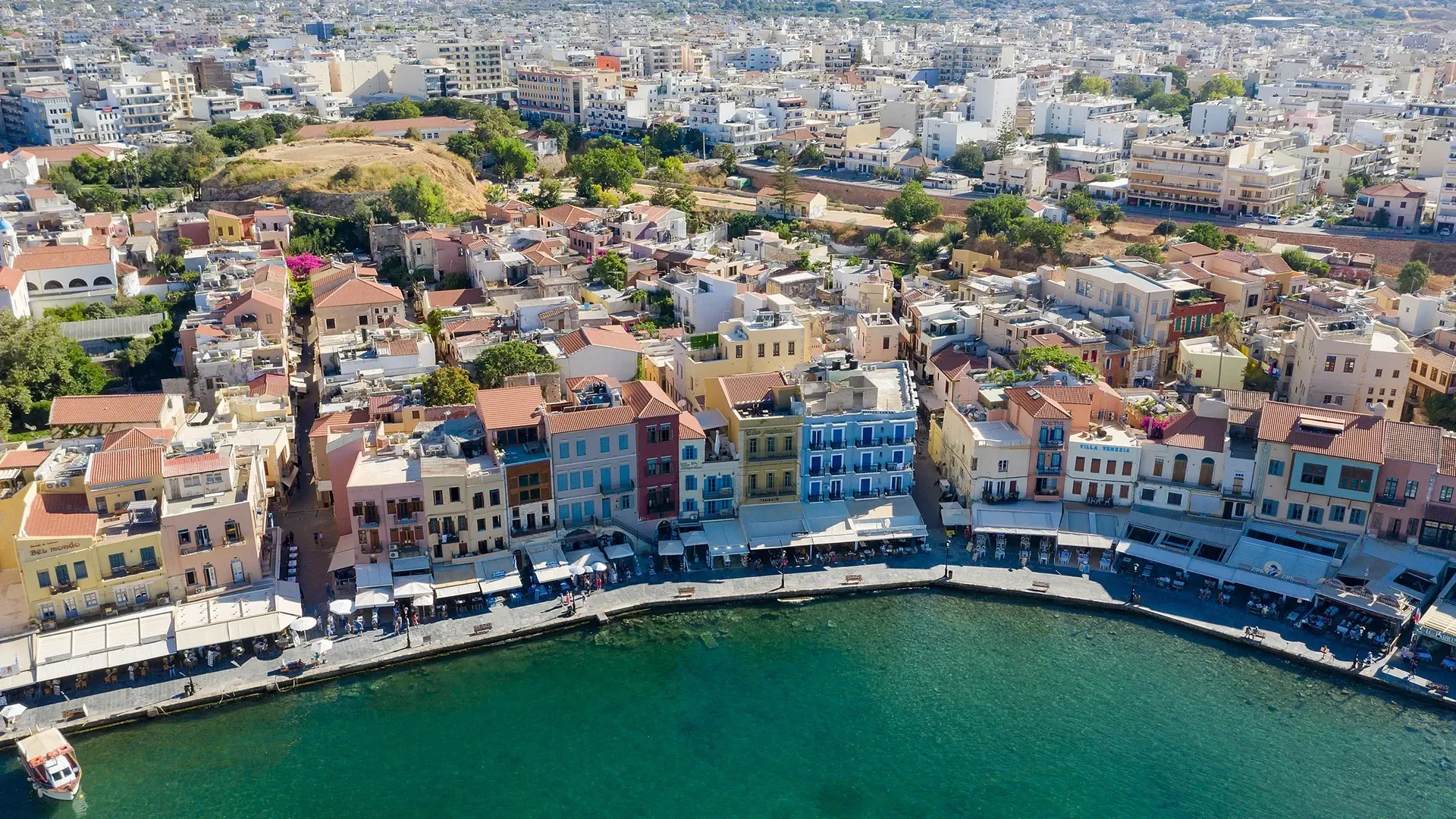
Visit Chania Old Town
Stroll through the charming streets of Chania, where Venetian architecture, colourful markets, and a picturesque harbour offer a perfect blend of history and local culture.
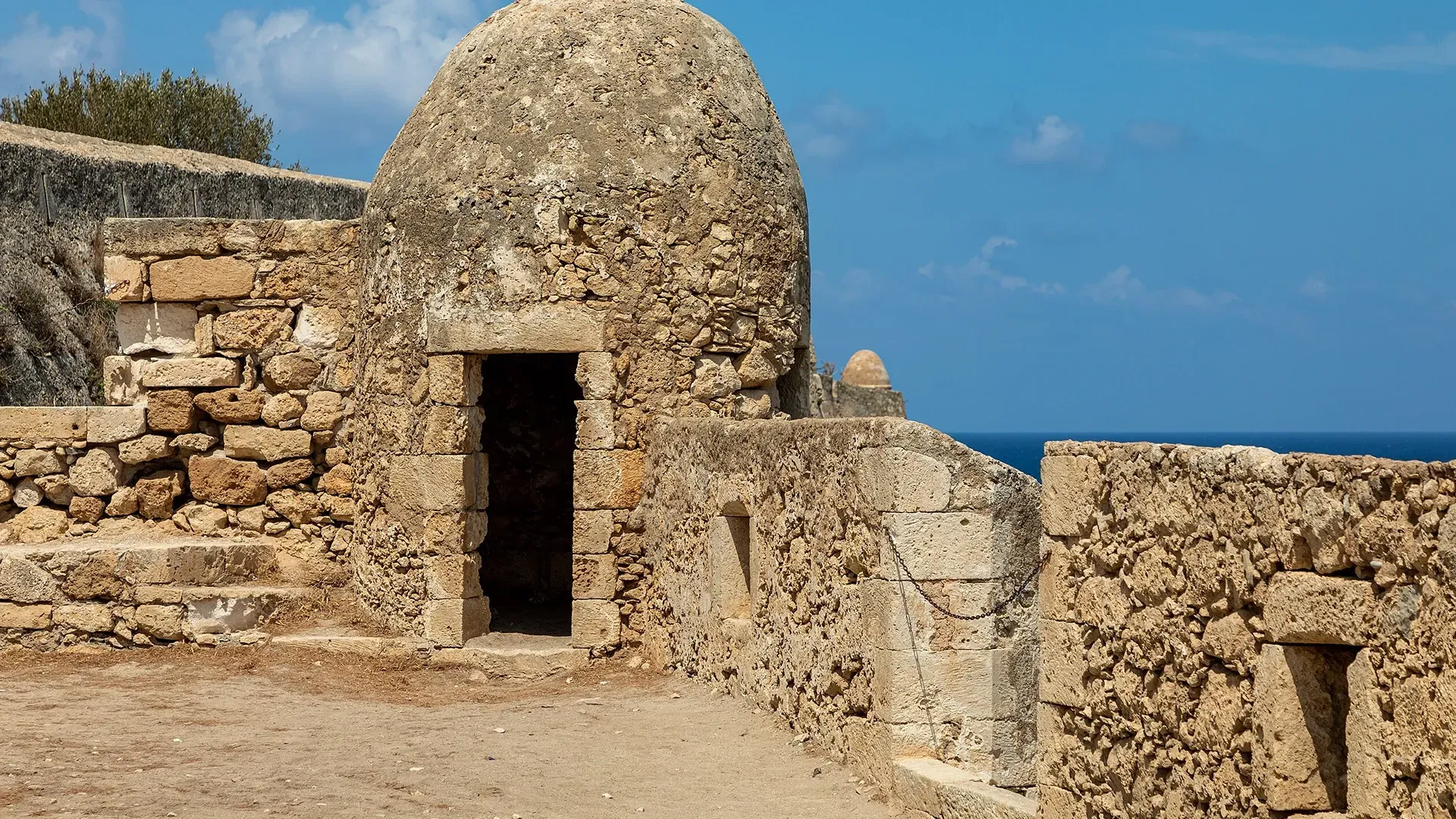
Discover the Rethymnon Fortress
Explore the 16th-century Fortezza, a Venetian fortress offering spectacular views of the town and the surrounding coastline, providing insight into Crete's medieval past.
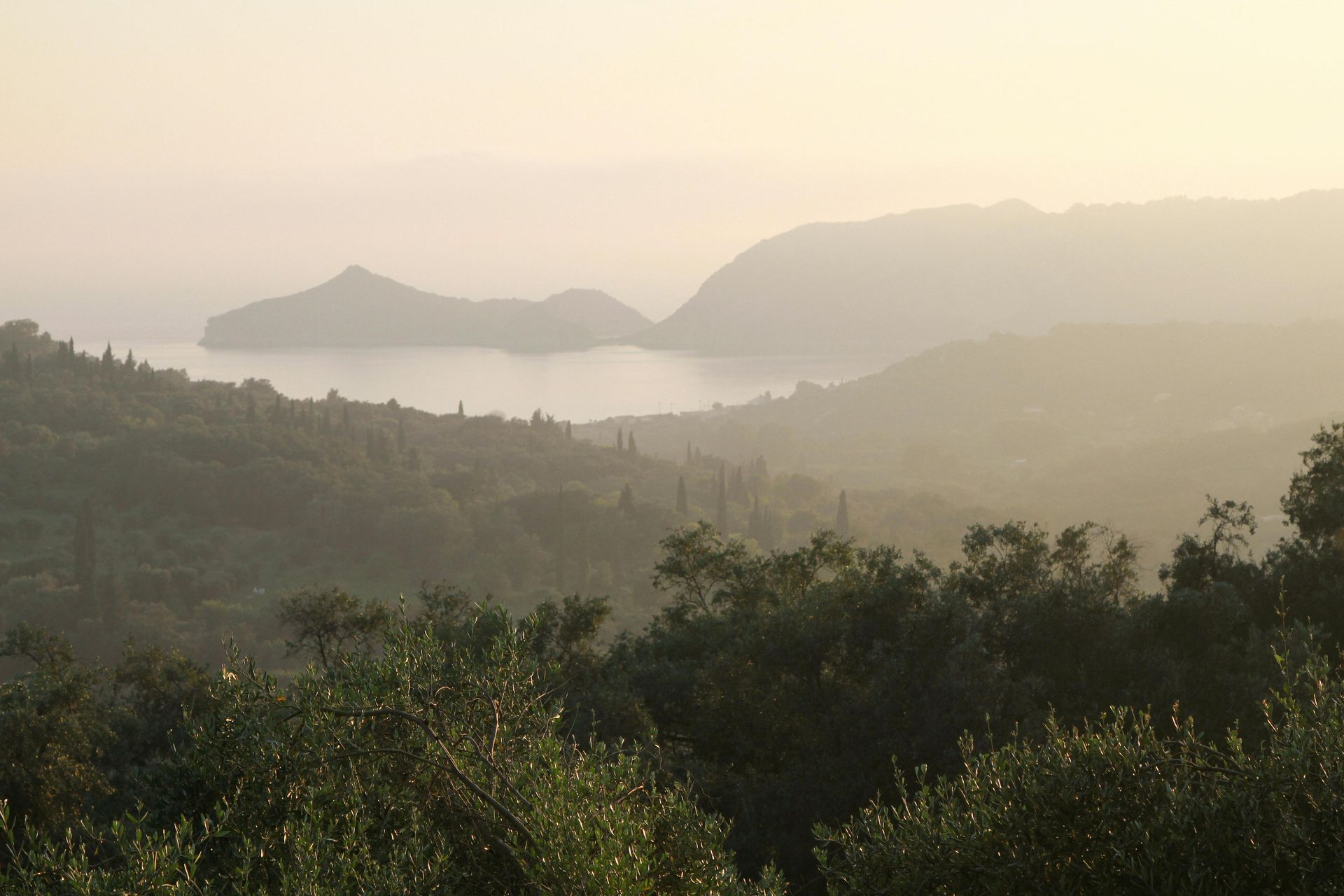
Tour the Cretan wineries
Enjoy a day of wine-tasting in Crete’s renowned vineyards, where you can sample local varieties like the crisp white Assyrtiko and rich red Kotsifali while learning about the island’s winemaking traditions.
Local Travel Guide
Crete is a year-round destination, but the best time to visit depends on your preferences for weather, activities, and crowds.
Spring (March to May)
Spring is one of the best times to visit Crete. The weather is mild, with temperatures ranging from 15°C to 20°C (59°F to 68°F), making it perfect for sightseeing, hiking, and exploring the island’s lush landscapes. The wildflowers are in full bloom, and the beaches are not yet crowded, offering a peaceful and picturesque atmosphere.
Summer (June to August)
Summer is peak season in Crete, with hot temperatures reaching up to 30°C to 35°C (86°F to 95°F), particularly in July and August. This is ideal for beach lovers, as the island’s shores offer clear blue waters and plenty of sunshine. However, be prepared for larger crowds and higher prices, especially in tourist hotspots like Chania and Heraklion.
Autumn (September to November)
Autumn is another excellent time to visit Crete, with pleasant temperatures ranging from 20°C to 27°C (68°F to 81°F). The sea remains warm enough for swimming, while the crowds begin to thin out, allowing for a more relaxed experience. This is also a great time for outdoor activities like hiking through the Samaria Gorge or exploring Crete’s historic sites.
Winter (December to February)
While winter is the quietest season in Crete, it offers a unique opportunity to explore the island’s culture and history without the usual tourist bustle. Temperatures can range from 10°C to 15°C (50°F to 59°F), and while it's not beach weather, the milder climate is perfect for sightseeing, visiting museums, and enjoying traditional Cretan food. Some mountain areas even offer opportunities for winter sports like skiing in the White Mountains.
- You’re a history enthusiast – Crete is a treasure trove of ancient ruins, from the Minoan palace of Knossos to the Venetian fortresses and Roman remains scattered across the island. If you love exploring the roots of civilisation, Crete offers a deep dive into the past.
- You enjoy outdoor adventures – Whether you're hiking through the stunning Samaria Gorge, trekking up rugged mountain trails, or diving into the crystal-clear waters of the Aegean, Crete’s diverse landscapes make it an outdoor lover's paradise.
- You’re a foodie – Cretan cuisine is a delight for the senses, with fresh Mediterranean ingredients, rich flavours, and traditional dishes like moussaka, lamb with staka, and dakos. If you appreciate authentic, farm-to-table dining, Crete will satisfy your taste buds.
- You love beautiful beaches – Crete boasts some of the most stunning beaches in Greece, from the pink sands of Elafonissi to the secluded coves of Balos. Whether you're looking to relax or indulge in water sports, Crete’s beaches offer something for every beach lover.
- You’re a culture seeker – With its mix of Greek, Venetian, and Ottoman influences, Crete offers a unique cultural experience, from the bustling markets of Chania to the traditional villages hidden in the mountains. Art, music, and folklore are at the heart of this vibrant island.
- You crave peace and relaxation – While Crete has bustling cities, it’s also home to serene villages, quiet beaches, and tranquil mountain retreats. If you're looking for a destination where you can unwind and soak in the natural beauty, Crete’s slower pace will captivate you.
- You want a little bit of everything – From vibrant cities and peaceful villages to scenic beaches, ancient ruins, and modern amenities, Crete truly offers something for everyone. Whether you're a solo traveller, a couple, or a family, you'll find plenty to explore and enjoy on this diverse island.
Cretan cuisine is a celebration of fresh, local ingredients and centuries-old traditions, offering a rich and diverse array of flavours. Known for its emphasis on healthy, Mediterranean ingredients, Cretan food is as much about quality as it is about taste. The island’s culinary heritage is rooted in the use of olive oil, fresh vegetables, locally sourced meats, wild herbs, and seafood, with many dishes reflecting the island’s ancient agricultural practices.
Currency
Crete uses the Euro (€) as its official currency. Credit and debit cards are widely accepted in most tourist areas, but it’s always a good idea to carry some cash for small purchases, rural areas, or local markets. ATMs are plentiful across the island.
Language
The official language of Crete is Greek, but English is widely spoken, especially in tourist hotspots, hotels, restaurants, and shops. Learning a few basic Greek phrases such as Kalimera (Good morning) or Efharisto (Thank you) can go a long way in making a good impression.
Transportation
Crete is well-connected by public buses, especially along the north coast. For more flexibility, renting a car is highly recommended, as it allows you to explore the island at your own pace, particularly the more remote areas and villages. Taxis are available, and there are also local ferries that connect Crete to other islands in Greece.
Voltage and Plug Type
Crete uses a 230V, 50Hz electrical system, and the plug type is C and F (two round pins). Be sure to bring a suitable adapter if your devices have a different plug type.
Tipping
Tipping is appreciated but not mandatory in Crete. It’s customary to leave 5-10% at restaurants if the service is good. In cafes and bars, rounding up the bill is common, while taxi drivers often expect a small tip for their service.
Water
Tap water is safe to drink in most parts of Crete, especially in larger towns and cities like Heraklion and Chania. However, in more rural areas or on some of the smaller islands, it’s advisable to drink bottled water for peace of mind.
Safety
Crete is a safe destination for tourists. As with any travel, take normal precautions against pickpocketing in busy areas, and always keep an eye on your belongings. In case of an emergency, the general emergency number in Greece is 112.
Health
There are several pharmacies on the island, and most medicines are available over the counter. It’s advisable to carry a basic first aid kit with essentials like pain relievers and sunscreen. Travel insurance that covers health emergencies is always recommended.
Wi-Fi & Connectivity
Wi-Fi is widely available in hotels, cafes, and many public spaces, particularly in tourist areas. However, if you’re planning to explore rural areas or hike, a local SIM card with data may come in handy.
Customs & Etiquette
Crete is a place rich in traditions, so respect for local customs is important. Dress modestly when visiting religious sites, and avoid public displays of affection. When visiting someone's home, it’s customary to bring a small gift as a sign of respect.
Gallery

Frequently Asked Questions
Do I need a visa to visit Crete?
Crete is part of Greece, which is a member of the European Union. British citizens and most EU nationals do not require a visa for stays up to 90 days. If you're from outside the EU, check the visa requirements based on your nationality before travelling.
What is the best time to visit Crete?
The best times to visit Crete are spring (March to May) and autumn (September to November), when the weather is mild and the island is less crowded. Summer (June to August) is ideal for beach holidays, but it can be hot and busy, while winter (December to February) offers a quieter experience.
What language is spoken in Crete?
The official language of Crete is Greek, but English is widely spoken, especially in tourist areas, restaurants, and shops. Learning a few basic Greek phrases, such as Kalimera (Good morning) and Efharisto (Thank you), can be appreciated by locals.
What currency is used in Crete?
Crete uses the Euro (€) as its official currency. Credit and debit cards are widely accepted in most places, but it’s always a good idea to carry some cash for smaller establishments or rural areas.
How can I get around Crete?
You can get around Crete by public buses, which connect major towns and cities. However, for more flexibility and to explore remote areas, renting a car is highly recommended. Taxis are also available, and local ferries connect Crete to other Greek islands.
Is Crete a family-friendly destination?
Absolutely! Crete offers plenty of family-friendly activities, including beach days, boat trips, hiking in nature reserves, and visits to historical sites. Many hotels and resorts cater specifically to families, making it a great destination for all ages.
What is the electrical voltage in Crete?
Crete uses 230V, 50Hz electricity with two round pin plugs (Type C and F). If your devices have a different plug type, you may need an adapter.
Are there any customs I should be aware of?
Cretan culture values hospitality and respect for tradition. When visiting churches or monasteries, dress modestly (covering shoulders and knees). Public displays of affection should be avoided, and it’s customary to greet people with a handshake or a friendly Kalimera (Good morning).
Contact Our Friendly Team
We're here to make your travel dreams a reality. Whether you have questions, need personalised recommendations, or are ready to plan your next adventure, our expert team is just a message away. Reach out today, and let us assist you in crafting an unforgettable experience.
Contact Us
We will get back to you as soon as possible.
Please try again later.


